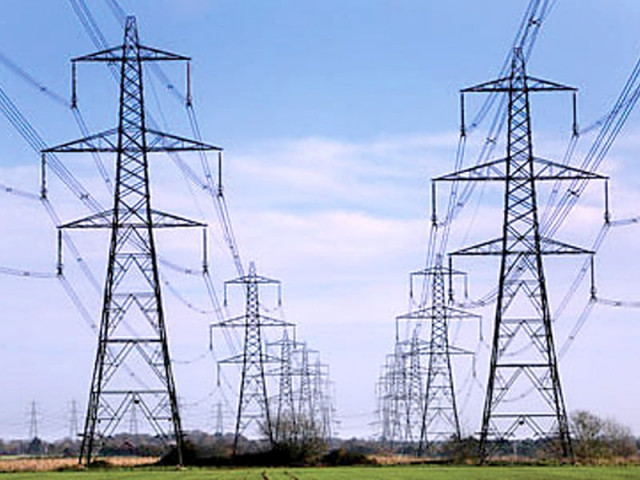Govt plans incentives for industries
Decides to offer similar concessions to industrial estates as provided to CPEC SEZs

The government has decided that incentives available to the Special Economic Zones (SEZs), being set up under the China-Pakistan Economic Corridor (CPEC), regarding electricity supply will be extended to other industrial estates and zones as well.
A new mechanism has been developed after consultations with China. Under the mechanism, approved by the Cabinet Committee on Energy (CCOE), the regulatory bar on the sale of electricity by the host power distribution companies (DISCOs), as suppliers of last resort, to other suppliers had been removed. It allowed DISCOs to sell electricity to any zone developer having a supplier licence from the National Electric Power Regulatory Authority (Nepra) under bilateral contracts.
The SEZ Act 2012 represents a significant step towards streamlining processes and promoting ease of doing business by offering concessions and benefits to investors.
Pursuant to Section 27(1) of the Act and in accordance with Rule 14 of the SEZ Rules 2013, it is the responsibility of the federal and provincial governments to ensure the provision of essential utilities, including gas and electricity, to SEZs.
SEZs established under the 2012 Act face significant challenges that hinder the realisation of their full potential for economic growth and industrial development.
These challenges include unreliable electricity supply, delay in the development of distribution infrastructure and the lack of compliance with the requirement of firm capacity as per the Regulation of Generation, Transmission and Distribution of Electric Power Act 1997.
The Act does not cover the provision of electricity by DISCOs at a single point for resale to consumers, causing delay in power connections and impeding the process to ensure uninterrupted power supply for sustained economic activity within SEZs.
Furthermore, there was delay in obtaining requisite licences due to ambiguity about the source of supply to SEZs, which was essential for the issuance of a licence for the supplier of last resort.
Despite the legislative mandate, the prevailing challenges besetting electricity supply to SEZs necessitate a comprehensive re-evaluation of the mechanism to meet the statutory obligation.
Accordingly, detailed deliberations were held with Chinese counterparts including the modalities for electricity supply.
It was agreed that CPEC SEZs would remain under the service territory of the concerned DISCO. The SEZ developer will sign an operation and maintenance (O&M) agreement with DISCOs for the development, operation and maintenance of infrastructure, electricity supply, billing and collection, eliminating the need for additional licences.
They agreed that industrial consumers would be charged a uniform tariff and the developer would receive an O&M fee for maintaining the network, which would be approved by Nepra in the distribution margin of DISCOs.
Also, CPEC SEZs will sign a power purchase agency agreement with DISCOs for electricity supply equivalent to peak demand for five years.
SEZs will apply for supplier of last resort and distribution licences under Section 23E and 20 of the Nepra Act 1997, respectively, for power supply and the development, operation and maintenance of distribution infrastructure. SEZs shall be obligated to procure additional power as per Nepra-approved regulations and applicable codes.
It is worth mentioning that Nepra, in its advertisement dated September 6, 2024, published draft amendments to the Nepra Licensing (Electric Power Supplier) Regulations 2022, whereby the regulatory barrier to the sale of electricity by host DISCOs, as the supplier of last resort, to other power suppliers was being removed, allowing DISCOs to sell electric power to any zone developer having Nepra's supplier licence under a bilateral contract. SEZs shall be obligated to pay the revenue collected from electricity sale to industrial consumers to the Central Power Purchasing Agency-Guarantee (CPPA-G), through an escrow account, after deducting the distribution margin as determined by Nepra.
The Ministry of Industries and Production had proposed that as the scope was restricted to CPEC SEZs, it would be prudent to include all SEZs to avoid any anomaly and multiple regimes. CCOE was requested to approve proposals including the signing of a power purchase agency agreement between CPEC SEZs and DISCOs, application from SEZs for supplier of last resort and distribution licences and procurement of additional power.
The energy committee noted that discrimination should be avoided with regard to different segments of industrial consumers and the incentive package proposed for SEZs should also be extended to industrial zones and estates operating in different parts of the country.
It noted that the initiative was aimed at minimising the role of DISCOs in SEZs and industrial zones. It was suggested that the distribution margin of DISCOs should not be added to the electricity price for SEZs.
CCOE was told that the Power Division had developed comprehensive O&M agreements, which would be signed with DISCOs.
Discussing the advantages of O&M contracts, it was highlighted that the introduction of a one-window facility would reduce complaints of overbilling and non-receipt of electricity bills on time, thus minimising the distribution cost, which would ensure uniform taxes in all SEZs.























COMMENTS (1)
Comments are moderated and generally will be posted if they are on-topic and not abusive.
For more information, please see our Comments FAQ